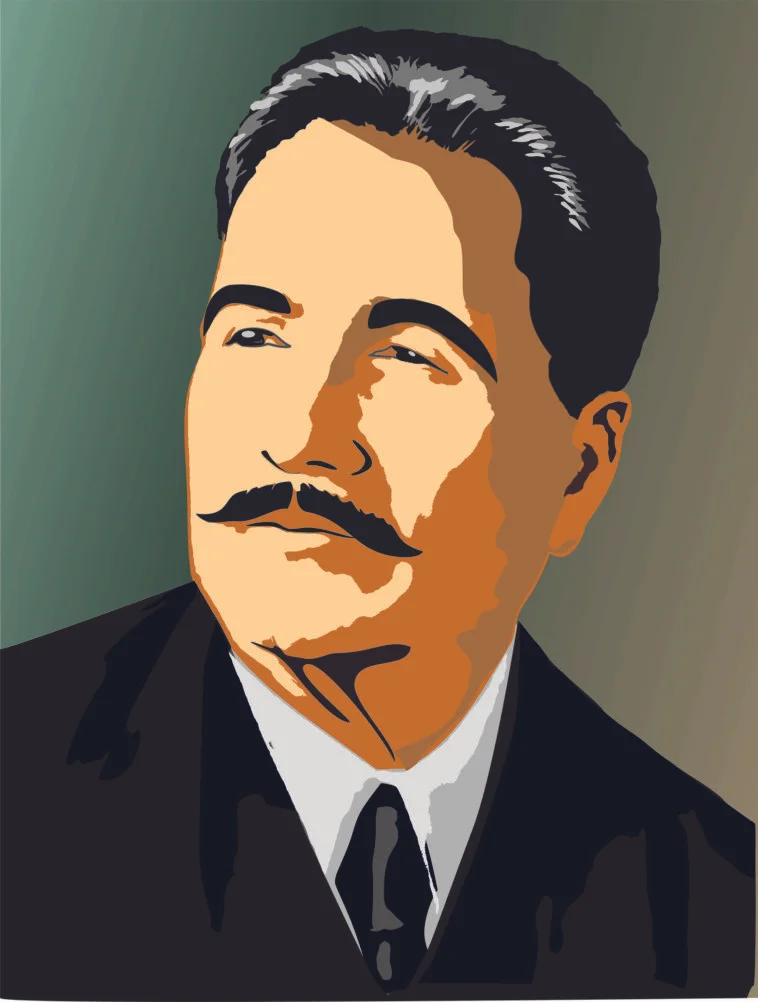During the period of British rule in the subcontinent, Iqbal was born in Sialkot on November 9, 1877. Despite gaining his livelihood by practising law, Iqbal got his fame from his strong grip on Persian and Urdu-language poetry – written in the classical style for public recitation.
While delivering a speech at Aligarh in 1910, Iqbal highlighted the new dynamics of his dreams and hopes. His ideology resonated through the themes of his poetry that went about the vanishing memories of the past glories of Islam, some complaints regarding its present status, and eventually tuning towards a call for unity and reform.
Another important part of Iqbal Day and its significance is to become aware of the intellectual journey that led him to become Hakeem-ul-Ummat (The Sage of the Ummah). Iqbal passed his matriculation exams in 1893 and enrolled at the Government College University (GCU) in 1895. His graduation with the Bachelor of Arts in philosophy, English literature and Arabic won him the Khan Bahadurddin F.S. Jalaluddin medal.
In 1906, pursuing higher education, Iqbal got a Bachelor of Arts degree on scholarship from Trinity College, University of Cambridge. In the same year, he was called to the bar as a barrister at the Lincoln’s Inn.
During his time in Europe (from 1905 – 1908), Iqbal began to write poetry in Persian – his preferred language as it made expressing his thoughts easier. And from here on forth, he wrote continuously in Persian. Iqbal had a great interest in Islamic studies, especially in the Sufi belief system.
Spirituality is a crucial aspect of Iqbal Day and its significance. Iqbal’s poetry, apart from the ideologies of independence, also explored the concepts of submission to Allah and following the path of the Prophet Muhammad (PBUH).
The main purpose of celebrating this day, across all the provinces of Pakistan, is to signify Iqbal’s importance and acknowledge his contribution that inspired the idea of the Pakistan movement among the Muslims of the subcontinent. He was the man who dreamt of a separate nation where Muslims could live peacefully, prosper, and ultimately enjoy practising their religion – with total freedom.
The reason why we celebrate Iqbal Day is that he has been a great contributor towards the movements of Chaudhary Rahmat Ali’s Two-Nation theory. Iqbal’s advocacy of this ideology was among the top reasons why the emergence of Pakistan evolved into a reality.
As a great politician and philosopher, inspiring the idea of an independent Muslim state, his words proved very powerful in encouraging the Muslim Ummah to fight for their rights and, evidently, generated power and unity in their struggles for freedom.
He is known as Muffakir-e-Pakistan (Thinker of Pakistan), Shair-e-Mashriq (Poet of the East), and Hakeem-ul-Ummat (The Sage of Ummah). Consequently, Iqbal was knighted in 1922. He died in Lahore on April 21, 1938.





